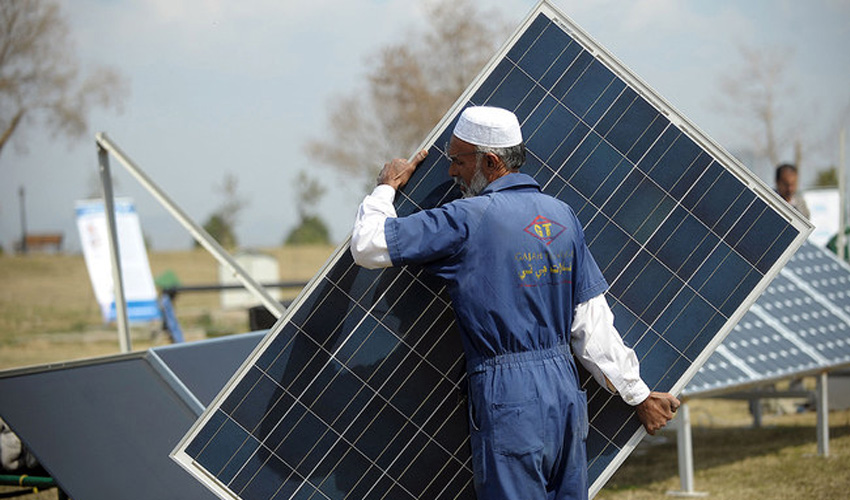Solar Panel Initiative
Amid widespread speculation surrounding potential changes to net metering and solar panel taxation, the 2024-25 budget took a different direction, marking a significant announcement for the solar industry.
Finance Minister Muhammad Aurangzeb unveiled plans aimed at reducing reliance on imported solar panels to conserve valuable foreign exchange reserves.
Instead, the government intends to incentivize domestic manufacturing of solar panels by offering subsidies on various components essential for their production.
Aurangzeb elaborated that the subsidies would encompass a range of components including plants, machinery, tools, panels, inverters, and batteries.
This strategic move aims not only to meet local demand but also to foster an environment conducive to exporting solar panels, thus contributing to economic growth and reducing dependency on imports.
The minister emphasized the dual objective of the measure: to satisfy domestic needs while also positioning Pakistan as a potential exporter in the global solar energy market.
Solar panels hold significant appeal for consumers in Pakistan, offering a means to mitigate high electricity costs and even generate revenue through net metering, where surplus electricity can be sold back to the grid.
By promoting local manufacturing and incentivizing the production of solar panels, the government aims to enhance accessibility to this renewable energy source while simultaneously bolstering the nation’s economy.
The announcement underscores the government’s commitment to promoting sustainable energy solutions and fostering a conducive environment for domestic industry growth.
It aligns with broader efforts to diversify the energy mix, reduce reliance on traditional fossil fuels, and advance towards a cleaner, more sustainable energy future.
Overall, the budget’s focus on incentivizing local solar panel production signifies a strategic shift towards harnessing Pakistan’s renewable energy potential and signifies a step forward in achieving energy security, environmental sustainability, and economic resilience.
I am a dynamic professional, specializing in Peace and Conflict Studies, Conflict Management and Resolution, and International Relations. My expertise is particularly focused on South Asian Conflicts and the intricacies of the Indian Ocean and Asia Pacific Politics. With my skills as a Content Writer, I serve as a bridge between academia and the public, translating complex global issues into accessible narratives. My passion for fostering understanding and cooperation on the national and international stage drives me to make meaningful contributions to peace and global discourse.










